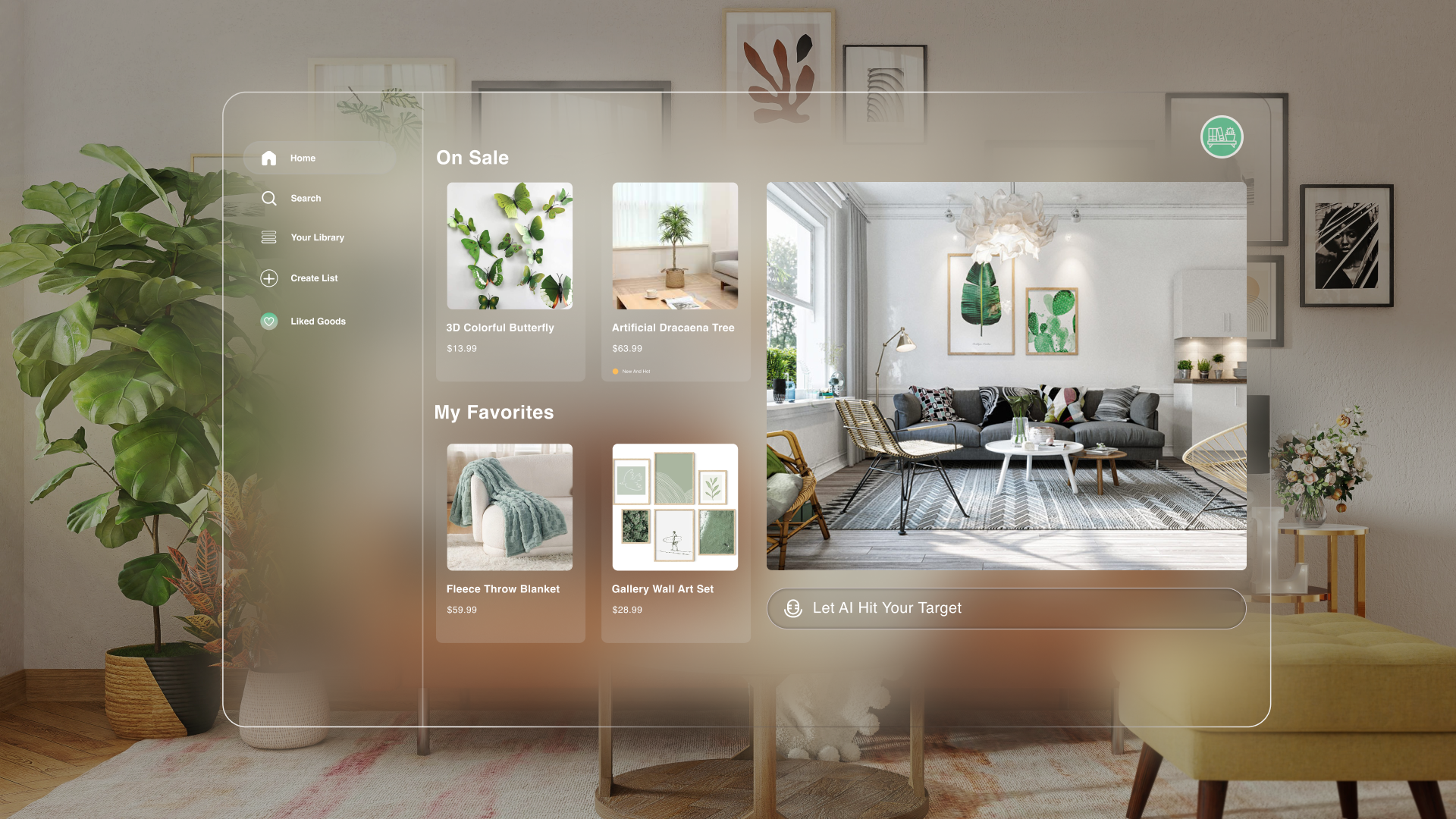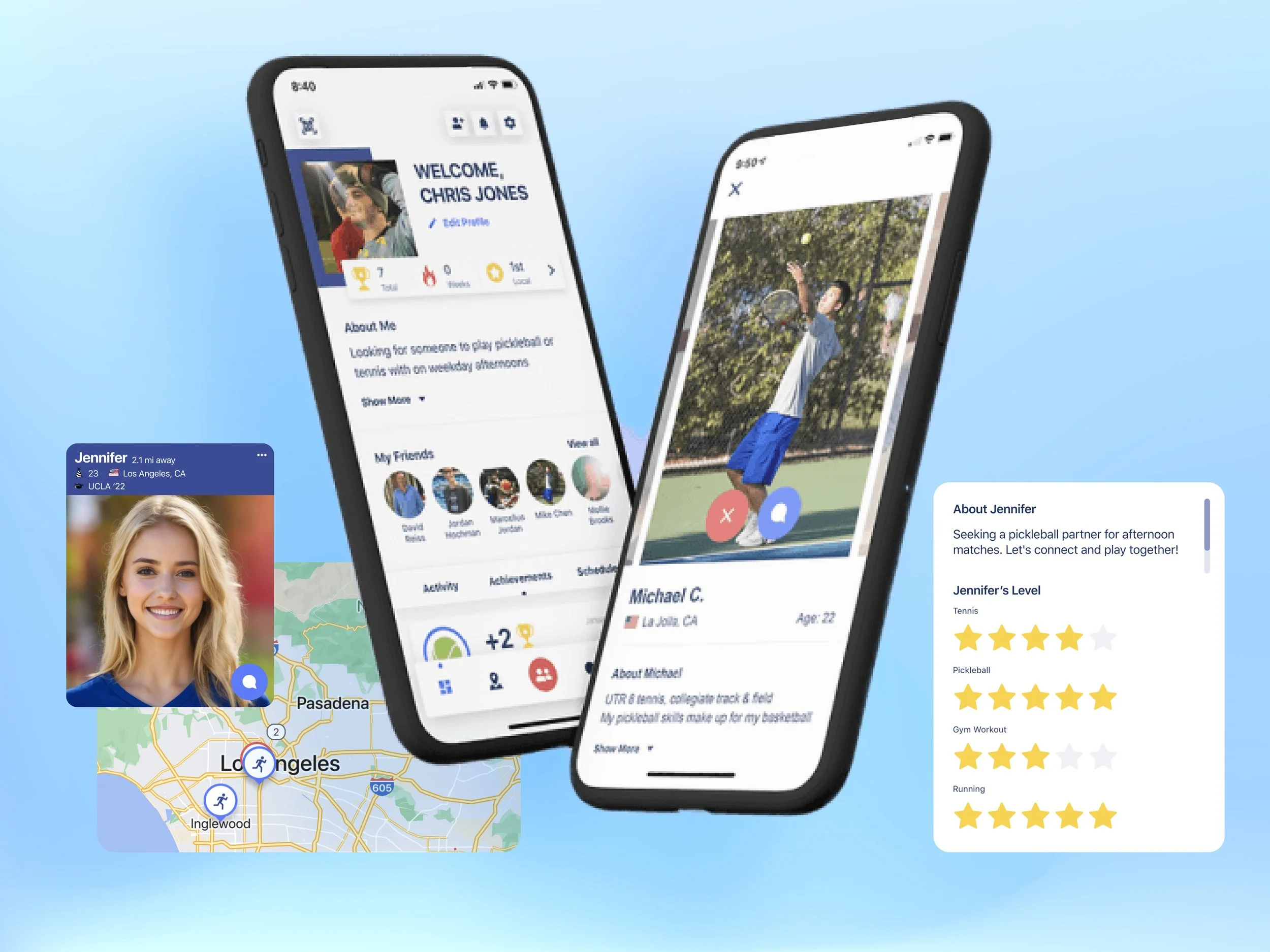
Boosting Online Purchasing Confidence with AI Power
Role: Product Designer
Constraints: Design sprint
Focus: AI feature development
Business Objective
House2Home is a new startup that wants to help people decorate their new homes and apartments. They want an e-commerce website that sells home decor items and accessories, and most products are $10~$50.
The Challenge
House2Home conducted a design sprint to investigate the feasibility of offering decoration bundles targeted toward Millennials seeking assistance decorating their living spaces. The proposed solution must be a website designed for larger screens for users interested in acquiring a "starter kit" of various products to decorate their new homes and apartments.
Day One: Empathy
Ally frequently lacks confidence in her ability to select online decorations that complement each other well in her space.
In order to gain a deeper understanding of the wants, needs, and objectives of individuals who shop online for home decor, I have analyzed the user research that was provided by the client. Ally was instrumental in envisioning the optimal shopping experience and selecting which features to incorporate into the prototype.
Day One: Map
What causes customers to lack confidence when shopping for home decorations?
In this project, I focused on the three most commonly mentioned issues that emerged from my review of the eleven customer interviews provided in the project prompt. The interviews asked customers about their experiences shopping for home decorations. After carefully reviewing the interviews, I identified the most prevalent problems and selected three to address in my project.
Tide Budget
Customers want to stay within budget.
Search & Pick
Customers want to have a quick "Search & Pick" method for home decor
Look good together
Customers want to prioritize items that look good together in their space
A possible end-to-end experience a user might have with the product by making a map
Day Two: Inspiration
During a lightning demo, I reviewed competitor solutions and related products with different engagement areas to solve a similar problem.
What are your favorite products/ solutions on the market right now?
Target: Deals- To Meet the Tide Budget
Affordable pricing with various promotions, discounts, and free shipping options
Wayfair: Searching- Have a Quick Search & Pick Method
Easy-to-use search filters
Personalized product recommendations based on browsing history
IKEA: Visualizing- Prioritize Items Look Good Together In Their Space
Interactive showrooms
Your custom space
Day Two: Ideation
How might we help Ally feel assured that her preferred decorations are a good match, allowing her to buy a bundle?
To maximize efficiency and generate optimal solutions quickly, I utilized the "Crazy 8's." This involved producing rapid sketches of various designs for the screen where Ally could select the bundle that caught her eye. Following this, I asked my friends to vote on the ideas they deemed most promising. Given the time constraints, this approach proved to be an efficient means of prioritizing the most favorable solutions.
Day Three: Solution Sketch
Ally’s journey starts by configuring the filters, then AI aids in the matching process and culminates by indicating the degree of suitability of the decorations she prefers.
On day three, I selected the sketches that received the highest number of votes and utilized them to create a storyboard of the complete experience. I ensured that each of the three main issues I identified on the first day was addressed in the solution.
AI-powered filters
AI-assisted double checking self selections
Self selections
Finish
Day Four: Preparing for Testing
Given the limited timeframe for creating a high-fidelity prototype, my main priority was concentrating on the crucial components that could impart a realistic feel to the prototype.
The objective of developing a prototype for the experience was to construct a credible depiction of how the design might appear if it were constructed. The creation of a lifelike prototype was critical to ensure that the testing procedure seemed authentic to the participants and thereby, enabled me to obtain the most authentic insights from the testing process.
Give the mockup a try.
〰️
Give the mockup a try. 〰️
Day Five: Validate
The style match indicator helped more than half participants feel more confident.
Before the commencement of testing, I established scenario-based tasks for participants to execute and follow-up questions to assess the efficacy of the design elements. The testing process involved a Figma prototype and was conducted on five participants.
“I feel more efficient and confident choosing with AI guides.”
“Style match helps, but I wanna buy some that are not the highest match.”
What I Learned
Stick to the plan and prioritize time management.
Striving for a balance between efficiency and attention to detail can help ensure that the project is completed on time while still meeting the necessary standards for quality and functionality.
Engage in self-critique during the design process.
If I take the time to try out the prototype myself and engage in self-critique, I would identify potential issues earlier and address them before testing. This approach will result in a smoother and more successful outcome.
Next Steps
Include steps to assist new users with easier navigation.
Implementing clearer and more intuitive navigation cues can help users understand where they are in shopping and feel more confident in completing their purchases.
Create an advanced AI system to provide better suggestions.
Through analyzing user data and behavior patterns, the system should offer better-personalized recommendations tailored to each individual's preferences and interests.
See More of My Works
Remote Payment Device Management for Smarter Commerce
Creating and Managing a Safe Social Community
Exploring New Ways to Enhance Creativity
The Easy Way to Find Like-Levels Workout Partners Anytime
Enhancing the Driving Experience and Alleviating Driver Stress









